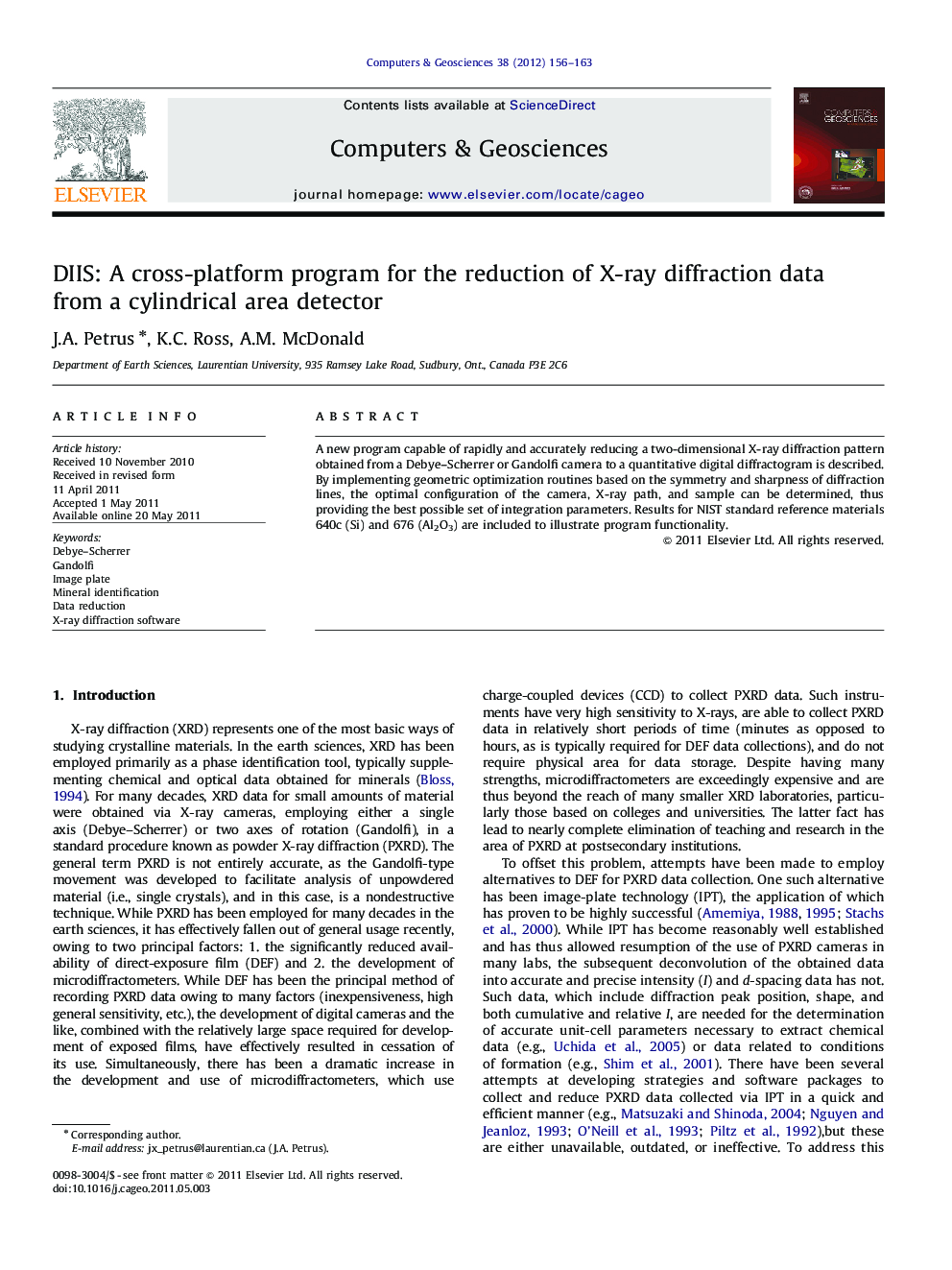| Article ID | Journal | Published Year | Pages | File Type |
|---|---|---|---|---|
| 507836 | Computers & Geosciences | 2012 | 8 Pages |
Abstract
A new program capable of rapidly and accurately reducing a two-dimensional X-ray diffraction pattern obtained from a Debye–Scherrer or Gandolfi camera to a quantitative digital diffractogram is described. By implementing geometric optimization routines based on the symmetry and sharpness of diffraction lines, the optimal configuration of the camera, X-ray path, and sample can be determined, thus providing the best possible set of integration parameters. Results for NIST standard reference materials 640c (Si) and 676 (Al2O3) are included to illustrate program functionality.
Related Topics
Physical Sciences and Engineering
Computer Science
Computer Science Applications
Authors
J.A. Petrus, K.C. Ross, A.M. McDonald,
